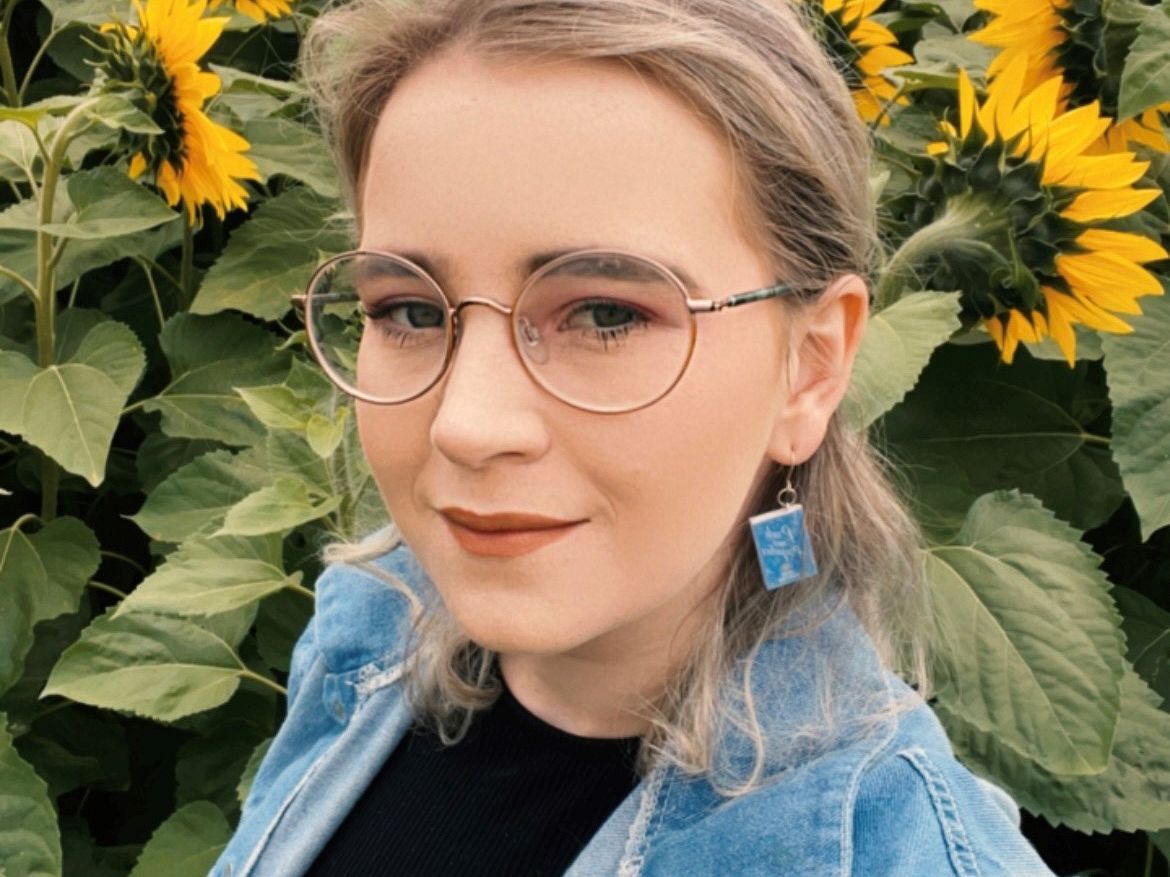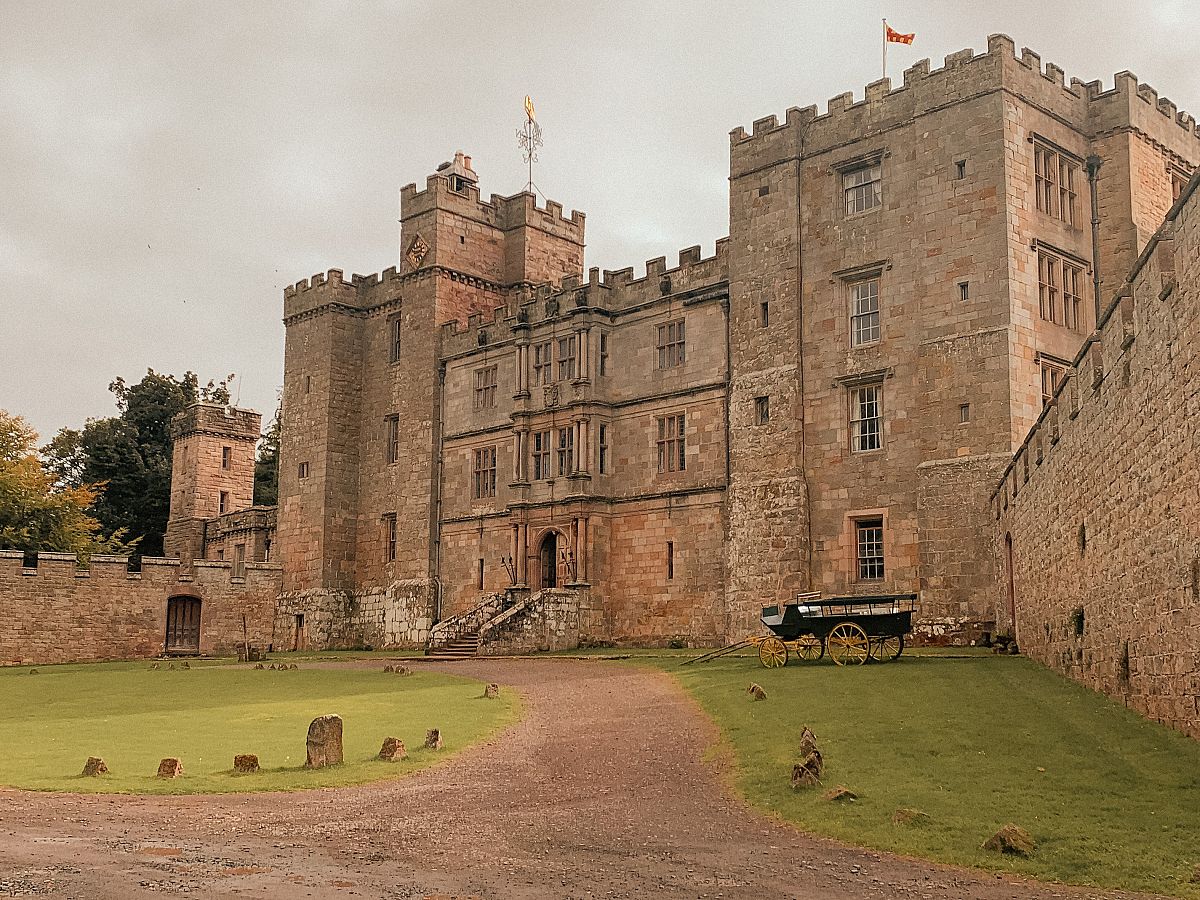Lucy Atkinson is a creative writing PhD researcher in our Department of English Studies and her research investigates witchcraft literature. Lucy is also working on her novel about the 1650 witch trials in Newcastle.
We spoke to Lucy to find out more about her research and her fascination with historical witch trials.

Lucy Atkinson
Tell us about yourself and the research you are doing for your PhD.
My research looks at the way historical witch trials are represented in contemporary fiction and how witchcraft literature, which is growing increasingly popular, has developed over the last few years. The figure of the witch is a particularly interesting one in literature because of her adaptability. We find witches in Young Adult fiction and children’s literature, fairytale, fantasy, historical fiction, and gothic fiction. The last five years have seen a rise in the focus on the historical witch and my research delves into the way that the witch is often being used in these works as a conduit for the contemporary female voice.
My novel centres itself on the historic events of 21 August 1650 where 14 women and one man were executed on the Town Moor in Newcastle for the crime of witchcraft. I grew up in County Durham and have always felt very strongly about the history of the North East - particularly the history of northern women which is so often forgotten in this part of the country. Much of my childhood was taken up with visits to the various English Heritage and National Trust sites in County Durham and Northumberland and I’m sure that these visits played no small part in informing the way I write and the interest I have in the history and landscape of this part of the world today.

Chillingham Castle, Northumberland
What sparked your interest in the North East witch trials?
The first time I heard about the Newcastle witch trials was in a small footnote at the back of a book of northern folklore I was reading which highlighted it as the largest mass execution for witchcraft in England. It seemed bizarre to me that I had never heard of a historical event of this magnitude, even though I was quite well acquainted with witch trials in other parts of the country like the ones at Pendle and in East Anglia. I had always been intrigued by how folklore and folk belief influenced history and, in this topic, that idea collided with the part of the world that I grew up in and love, so it was a perfect thing for me to focus my attention on.
Tell us about your work as a poet and a playwright.
The novel I’m writing for my PhD is my first real attempt at prose, having started my career in writing with poetry and drama. I have been involved in multiple theatre groups since I was a very young child and have always loved a trip to see a play above all else. When I graduated with my undergraduate degree, I began writing plays for a local youth group which they would perform and use to compete in one-act festivals around the country. I have been lucky enough to publish my first play As It Was and my more recent play Survive the Night which have now been performed by youth companies and schools throughout the world from Australia to Japan. Writing can be such a solitary experience, so I have really valued being able to work with a company of young actors to create a piece that we are all proud of. Since 2019, I have published many poems both online and in print in publications such as Acumen, Agenda and Ink, Sweat and Tears. I have always considered poetry, perhaps because of the brevity that comes with it, to be the best form of writing to develop and learn. Any writer who wants to be good at writing prose could sharpen their craft by giving poetry a try. My work has always leaned quite heavily towards the gothic and the usual, so I am pleased to be taking on a new venture that explores these themes in a different form.
Who inspires you, personally or professionally?
In both my private life and my writing, I find that the people who inspire me most are the ones who are stubborn and find a way to look at the world from a different perspective. I have always been very moved by the works of Guillermo del Toro who, through his work, finds beauty in the monstrous and strange - a perspective that the world could very much use more of. Among my own family and friends, I am lucky enough to be pretty much constantly surrounded by brilliant creatives, educators and various kinds of hard workers who engage every day in the small acts of kindness and creativity that are truly worth paying attention to.
What do you hope to do when you complete your PhD next year?
In the first instance, I’ll probably catch up on some of the time off I’ve been missing over the last few years and maybe take a holiday somewhere sunny, but my priority once the PhD is finished will be to find a good home for my novel. I’ve been working on this book for over three years, and it has been a real labour of love so I’m very excited to get it out into the world where other people can enjoy it. Beyond that I have found the teaching that I took part in during my PhD to be a surprisingly rewarding aspect of the last few years so I will likely pursue a position that allows me to continue teaching and working with other people as they begin their journey into writing or researching English.
